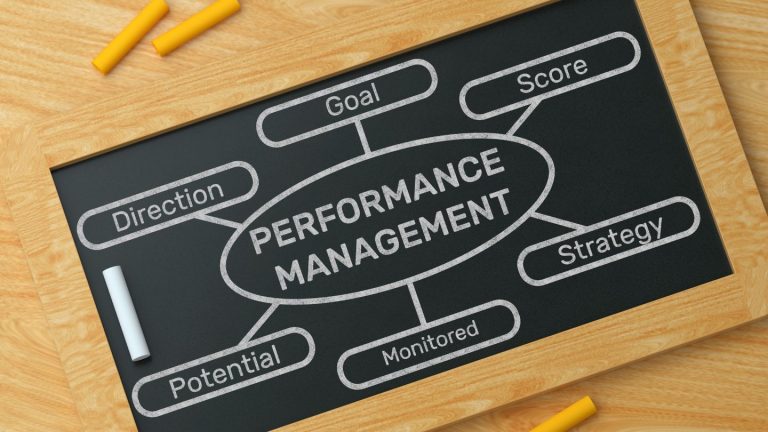Over the last few years, performance management has become more agile, with many organizations moving away from the traditional approach of annual appraisals.
The benefits of performance management are more important than ever after a year of disruption and adjustment due to the pandemic. Take a closer look at these key benefits and how they can benefit your employees and your business operations as a whole.
Continuous, effective performance management helps foster an open dialogue between employees, management and the company as a whole. This increases trust and ensures everyone feels better supported and more engaged. Without this, employees are more likely to feel detached from their work and its role within the organisation, which is very likely to result in a higher rate of staff turnover.
What is Performance Management?
Essentially, performance management is the process by which organizations engage with their employees to evaluate their contributions and efforts. An employee performance review is a way of assessing strengths and identifying weaknesses- but more importantly, finding ways to work on these areas so employees can grow and develop.

The traditional model of performance management would be to hold an annual appraisal, where an employee and their manager would discuss their performance. Since they were developed in the 1970s, much has changed, and companies are gradually moving away from them to manage performance in a more constructive and continuous way.
Agile performance management might include the following characteristics:
- Catch-ups every week or every month
- Feedback on a regular basis
- Setting goals and reviewing progress continuously
- Identifying learning and development opportunities
Why is Performance Management Important?
The key to getting the most out of your employees is performance management. According to a common statement in the business world, your people are your most valuable asset. Your business cannot reach its full potential without motivated and engaged employees. If you invest time and management into the careers of your employees, both of you will benefit.

In a 2017 survey, Deloitte found that 90% of the organisations that took part saw an improvement in employee engagement after changing the way they approached performance management. Reviewing things in 2020-2021 found that one of the key objectives workers wanted to see in work transformation was a focus on employee wellbeing. A continuous approach to performance management will be important in providing the right level of support for employee wellbeing to be built into goals and objectives.
Looking For the Best Retention Strategy for Your Company? VITE is the perfect fit for you!
What are the Benefits of Performance Management?
Several key benefits can be realized by implementing an agile approach to performance management:
- Improved employee engagement and motivation
If you take a continuous approach to performance management, you are able to spend valuable time making sure that your employees are working toward goals and objectives that will allow them to maximize their skills and abilities. Consequently, there is more opportunity for job satisfaction and achievement.
- Better talent retention
When people are such an important asset, it’s critical to find ways to retain them. Employees have more autonomy and can identify areas they want to work on, giving them a reason to stay.
- Set clear expectations and objectives
Employees can contribute to the creation of SMART goals by setting clear objectives to work towards. Employees who have clear expectations know what is expected of them, which means the business can be confident that everyone is performing the right tasks.
- Identify development and progression opportunities
By using this agile approach to performance management, you can easily identify employees who are performing well and may be suitable for promotion. Additionally, it is a key tool for employees to analyse their own development, giving them the opportunity to express how they want to develop. Regular catch-ups will allow them to assess their progress regularly.
- Highlights training gaps
A key benefit of performance management is the ability to identify areas of weakness where employees could benefit from additional training. SMART goals also help staff pinpoint these areas themselves and communicate specific training requirements.
- Identifies potential risks
The correct approach allows you to identify the cause of underperformance or unmotivation of an employee and help them to get back on track. There are a number of reasons why this might be happening, whether it is mental health related, having too much to do or not being challenged enough. An open conversation will tell you what the data cannot.
- Better overall business performance
The benefits listed above contribute to better performance within the business as a whole. Happy employees will deliver better work and be more productive.
I’m motivated to try new things and keep improving. This highlights the importance of performance management and the value it can bring to your entire organization.
Learn how to make the most of your performance management strategy by using performance management software.
